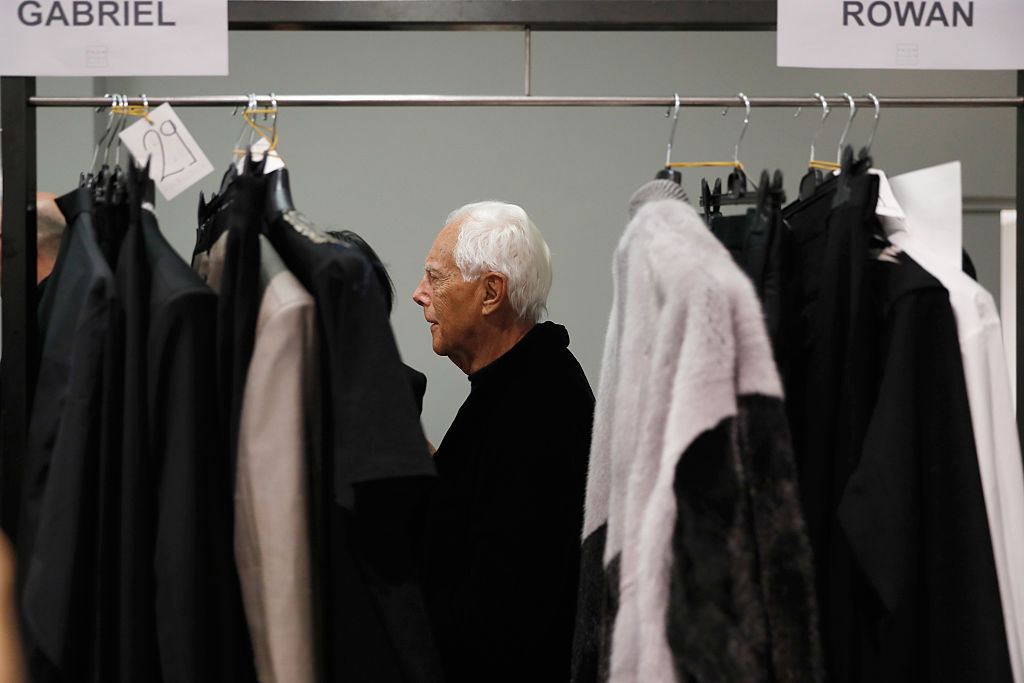Giorgio Armani, the pioneering Italian designer who redefined modern fashion with his understated tailoring and timeless elegance, has died at the age of 91. His fashion house confirmed on Thursday that he passed away at home in Milan, surrounded by loved ones.
A visionary of Italian style
Born in Piacenza in 1934, Armani built an empire that became synonymous with Italian sophistication. Often called “Re Giorgio” or King Giorgio, he rose from humble beginnings as a window dresser at La Rinascente department store to establish his own label in 1975 with his business and life partner, Sergio Galeotti.
The launch of the Armani suit in the late 1970s transformed menswear, stripping away stiff linings in favour of fluid silhouettes that reshaped the way power dressing was perceived. In the 1980s, he carried that vision into womenswear, introducing the power suit for women at a time when female authority in the workplace was still emerging.
Hollywood and the red carpet
Armani’s designs soon caught the attention of Hollywood. Richard Gere’s Armani-clad performance in the 1980 film American Gigolo helped cement the brand’s reputation as the uniform of both film stars and executives. His creations became a staple on red carpets worldwide, worn by the likes of Sophia Loren, Jodie Foster, Sean Connery, Cate Blanchett and Tina Turner.
Armani’s influence extended beyond fashion. His work in film and his long-standing relationships with actors and musicians meant his brand became deeply entwined with popular culture. He is widely credited with bringing a refined Italian aesthetic to the global stage.
Building a global empire
Over five decades, Armani expanded his brand far beyond clothing. His empire included fragrances, home furnishings, books, hotels, restaurants and even chocolates. In 2011, he unveiled a vast Armani complex in central Milan, encompassing a hotel, luxury boutiques, a nightclub and lifestyle spaces, following the opening of the Armani Hotel in Dubai’s Burj Khalifa.
He also made his mark in sport. In 2008, he bought Olimpia Milano, Italy’s most successful basketball team, and developed the sportswear line EA7, which later designed Italy’s Olympic uniforms for London 2012, Rio 2016 and Tokyo 2020.
Personal life and enduring influence
Armani never married, and after Galeotti’s death in 1985 from AIDS, he became the sole shareholder of his company. He often described their relationship as one built on deep complicity and shared vision. Unlike many other luxury houses now owned by multinational conglomerates, Armani remained independent, retaining complete control over his brand.
His health had been in decline for some time. In June 2025, for the first time in his career, he missed Milan’s Men’s Fashion Week as he recovered from illness. His absence then was a poignant signal of change in the house he had steered so closely for half a century.
Legacy of a fashion icon
The Armani Group, valued at up to €10 billion in 2024, remains one of the last great privately owned fashion empires. Armani’s tailoring continues to inspire new generations, with his vintage suits increasingly sought after on the secondhand market.
His contribution to fashion and culture was recognised with countless honours, including Italy’s Grand Officer of the Order of Merit and a Lifetime Achievement Award from the Council of Fashion Designers of America. In 2002, he was appointed a UNHCR Goodwill Ambassador.
A funeral chamber will be open to the public in Milan this weekend, with a private funeral to follow.
Armani’s death marks the end of an era in fashion, but his legacy lives on in every red carpet appearance, every sharply cut suit and every designer who dares to find beauty in simplicity.
ALSO SEE:
Featured Image: Getty

